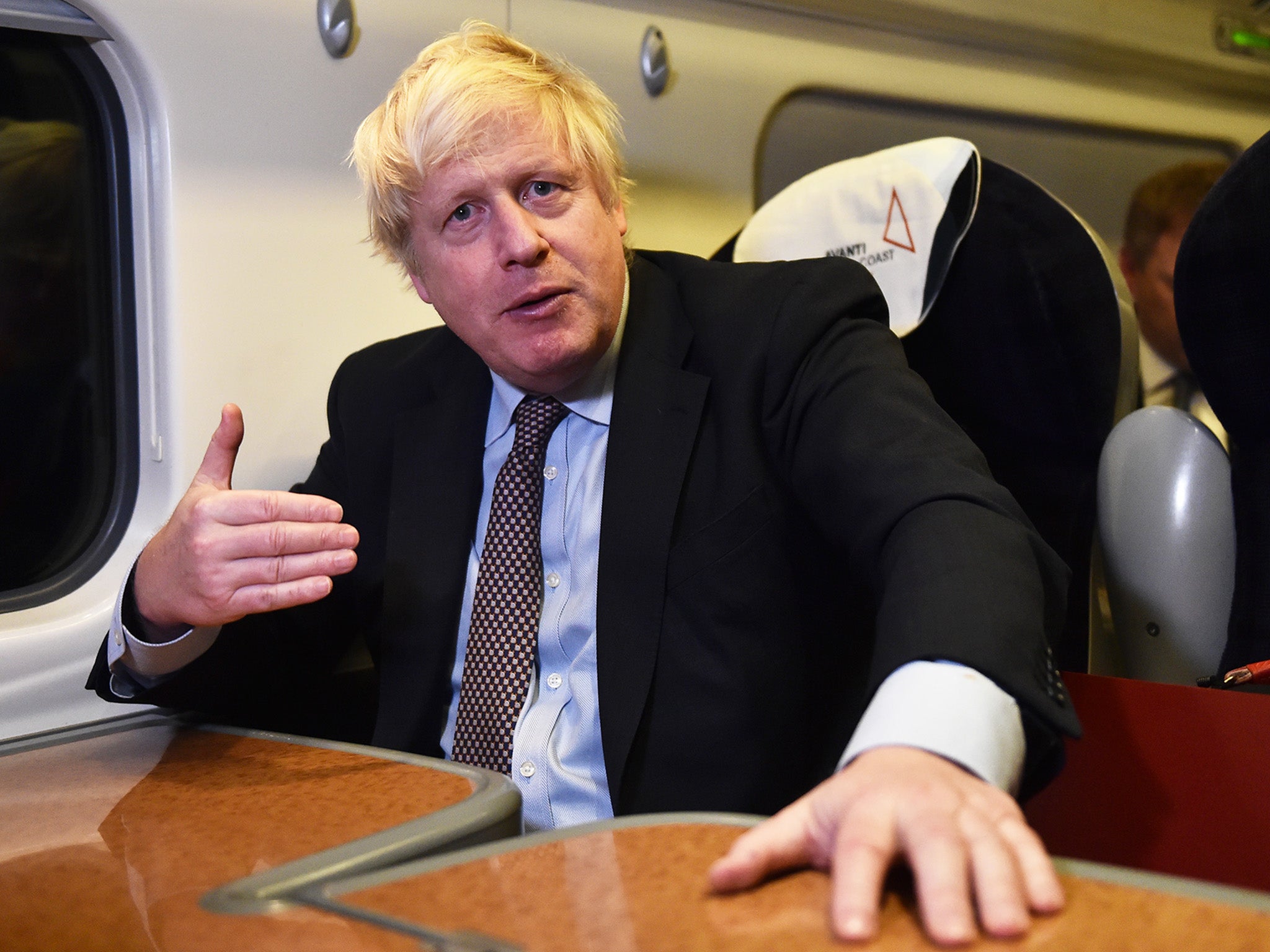A second UK transport plan is in the works – so how does it compare to the Integrated Rail Plan?
The Man Who Pays His Way: In transport as in life, it’s good to have a plan. But only one

Simon Calder, also known as The Man Who Pays His Way, has been writing about travel for The Independent since 1994. In his weekly opinion column, he explores a key travel issue – and what it means for you.
Goodness, I’m confused. If you were kind enough to read my thoughts last week on the government’s Integrated Rail Plan, you may recall that I was not especially charitable about the decision to axe all but a stump of the eastern section of HS2, the high-speed network that was supposed to unlock capacity and thus increase connectivity for moving people and goods around the UK – in particular between London, the Midlands and Yorkshire, with benefits for northeast England and Scotland.
Still, the investment in rail represented by the downsized project is substantial. And in organising transport as in organising life, it’s always good to have a Plan.
But only one.
You wait a decade for a Plan on how to connect the UK rather better than the current shambles of Victorian railways and 1960s and 1970s motorways, and then two come along in a week.
On Friday morning the Union Connectivity Review landed with a metaphorical thud on my desk, and I duly read it.
The man responsible for presenting what he calls “A Strategic Transport Network for the Whole United Kingdom” is Sir Peter Hendy – a consummate transport professional, well used to working with the prime minister.
When Boris Johnson was mayor of London, Sir Peter ran the transport network for him. He also knows how to nod politely at the PM’s pet scheme for a tunnel between Scotland and Northern Ireland, while (I imagine) quietly thinking “that’s the most bonkers idea for squandering billions I’ve heard since your incoherent plan for the Thames Estuary airport” and dropping the idea.
The word “tunnel” appears only once in the review – and it’s the one linking England with France. As you might expect, though, “HS2” appears dozens of times; the link from London to Birmingham and the northwest will be an essential component of that strategic transport network. Sir Peter makes the point that it will improve links from England to both north Wales and southern Scotland.
So what’s new? Well, Sir Peter has a plan that he believes is even more cunning than Grant Shapps’ Integrated Rail Plan. Last week’s plan specified that HS2 would be built as far as Crewe, where it will join the west coast main line (WCML).
But this week’s plan proposes “an alternative connection to the WCML, for example at some point south of Preston”. If I have this right, that’s an extra 40 miles at least, even if the high-speed route between Warrington and Manchester is tweaked a bit. Oh, and let’s have “possibly new sections of line north of Preston” as well. I am not sure that Sir Peter popped his head around the door of No 11 Downing Street to see what Rishi Sunak thought of his plan; the chancellor may not look kindly at an extra £10bn (or double that for luck) for a project that has only just been scaled back. And Mr Sunak is already being asked to chip in to make flying cheaper.
Airlines have been repeatedly scolded for the harm they cause to the environment, with domestic flights singled out for particular scorn. Counter-intuitively, the chancellor amazed Cop26 delegates as they converged on Glasgow by announcing the halving of Air Passenger Duty (APD) on domestic flights from 2023. The leading beneficiaries will be commuters flying from London to Edinburgh and Glasgow – incentivised to take the plane rather than the train.
The government, you cannot fail to have noticed, has a plan for Net Zero. Yet Sir Peter’s plan calls for more domestic flying. It calls for subsidies for more routes within the UK and recommends the government “intervene in the assignment of slots at London airports to provide more slots for domestic routes”. All of this is encouraging more flying, not less. The review stipulates aviation is the answer “where journeys are too long to be reasonably taken by road or rail”, but never defines “reasonable”. In the olden days, when airlines took the mickey on fares, no road, rail or sea journey within the UK was ever unreasonably long for me and millions of others.
How do we resolve these inherent contradictions in the government’s crucial transport strategy? I might have a plan…
Subscribe to Independent Premium to bookmark this article
Want to bookmark your favourite articles and stories to read or reference later? Start your Independent Premium subscription today.

Join our commenting forum
Join thought-provoking conversations, follow other Independent readers and see their replies